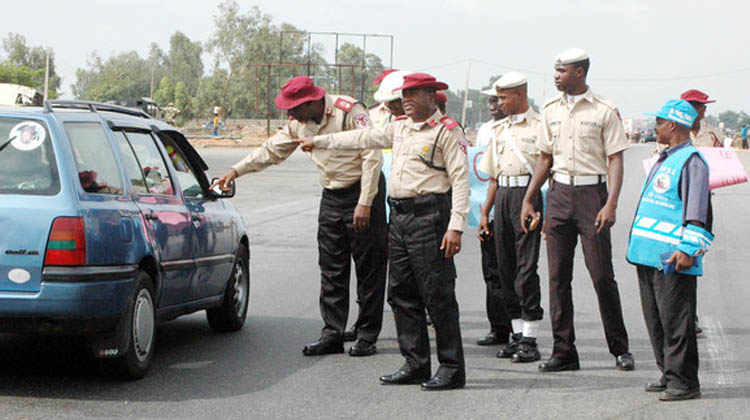NEWS
FRSC Redeploys 61 Officers to Reinvigorate Road Safety

In a far-reaching move to address the persistent challenges of road safety across the country, the Corps Marshal of the Federal Road Safety Corps (FRSC), Shehu Mohammed, has approved a massive redeployment of 61 senior officers. The strategic posting, which includes a new corps secretary and several sector commanders, is part of a broader effort to invigorate the Corps’ operations and solidify its commitment to creating safer roads for all Nigerians. The reshuffle is seen as a proactive measure designed to inject fresh energy into the agency’s key formations, bringing new leadership and perspectives to critical areas such as enforcement, policy, and administration. For the average Nigerian commuter, this bureaucratic exercise holds significant weight, as it represents a new leadership’s promise to tackle the complex human and systemic issues that make the nation’s highways among the most dangerous in the world.
Nigeria’s road transport sector is plagued by a high rate of accidents and fatalities, a grim reality that has long been a source of national concern. The Federal Road Safety Corps, established in 1988 as the lead agency on road safety management, has a mandate to combat this menace. However, the task remains daunting due to a combination of factors. Overspeeding, reckless driving, and a general disregard for traffic rules are major human-related causes. These are often compounded by poor vehicle maintenance, inadequate road infrastructure, and a lack of proper signage. The FRSC has faced the dual challenge of enforcing regulations and re-orienting public behavior. The Corps Marshal’s redeployment exercise is a direct response to this ongoing battle, aiming to place experienced and capable hands in positions where they can have the greatest impact on reducing road carnage and ensuring a more disciplined motoring culture across the federation.
The redeployment exercise affects a total of 61 corps commanders and other high-ranking officers. Beyond the sector commands, the postings cover key formations at the FRSC National Headquarters, the Corps Academy, zonal commands, and special units nationwide. The strategic appointments include Assistant Corps Marshal G. Ntukidem, who has been appointed as the new Corps Secretary, and ACM J.W. Toby, who moves to assume duty as the Zonal Commanding Officer, RS11HQ Osogbo. These key movements reflect FRSC’s resolve to strengthen institutional capacity at both command and support levels, ensuring that a robust command structure is in place to support the boots on the ground. By shuffling leaders across the country, the management aims to cross-pollinate ideas and best practices, drawing from diverse experiences to forge a more effective and unified approach to road safety. This is a clear signal that the Corps Marshal is leaving no stone unturned in his quest for a more efficient and responsive agency.
The new appointees are expected to bring fresh vigour to FRSC operations, aligning their efforts with the Corps’ mandate of promoting safer roads and fuller compliance with traffic regulations. This is particularly crucial at the state level, where the new sector commanders will be the primary agents of change. For instance, the posting of CC J.N. Alexander to Delta State and CC Y.T. Etuku to Kogi State signals a renewed focus on these vital transport corridors. Similarly, the deployment of CC B. Asekhauno to Anambra State and CC A.P. Longkam to Yobe State shows a strategic effort to address road safety challenges in different geopolitical zones. These leaders are tasked with the immense responsibility of not only enforcing traffic laws but also engaging in robust public education campaigns, ensuring that citizens understand and adhere to the importance of safe driving practices. The effectiveness of this reshuffle will be measured by a tangible reduction in road accidents and a visible improvement in traffic management in these areas.
The true success of this redeployment will ultimately depend on its ability to translate high-level strategy into tangible results on the ground. The public’s perception of the FRSC, though generally positive in areas like rescue operations, has at times been critical of a perceived overemphasis on revenue generation. The new leadership’s ability to shift this narrative by focusing squarely on its primary mission of public safety will be key to earning the trust and cooperation of the motoring public. The Corps Marshal has urged the newly appointed officers to justify the confidence reposed in them and to lead by example. This call to action is a powerful message that the leadership is holding its senior personnel accountable for the success or failure of their efforts. It also serves as a reminder to the public that road safety is a shared responsibility, requiring a cooperative spirit between law enforcement and citizens to build a culture of compliance.
In conclusion, the mass redeployment of FRSC officers is a bold and necessary move to recalibrate the agency’s operations in the face of persistent road safety challenges. It is a strategic exercise that goes beyond a simple list of names, reflecting a deeper commitment to strengthening institutional capacity and injecting new life into key command structures. As the new officers settle into their roles, the nation will be watching closely to see if this change in leadership can translate into a significant and lasting improvement in road safety. The hope is that this shake-up will pave the way for a new era of professionalism and efficiency, making Nigeria’s highways a safer and more secure place for all who travel them.
